The Advantages and Disadvantages of Bimetallic Washers: Keeping Your Connections Tight
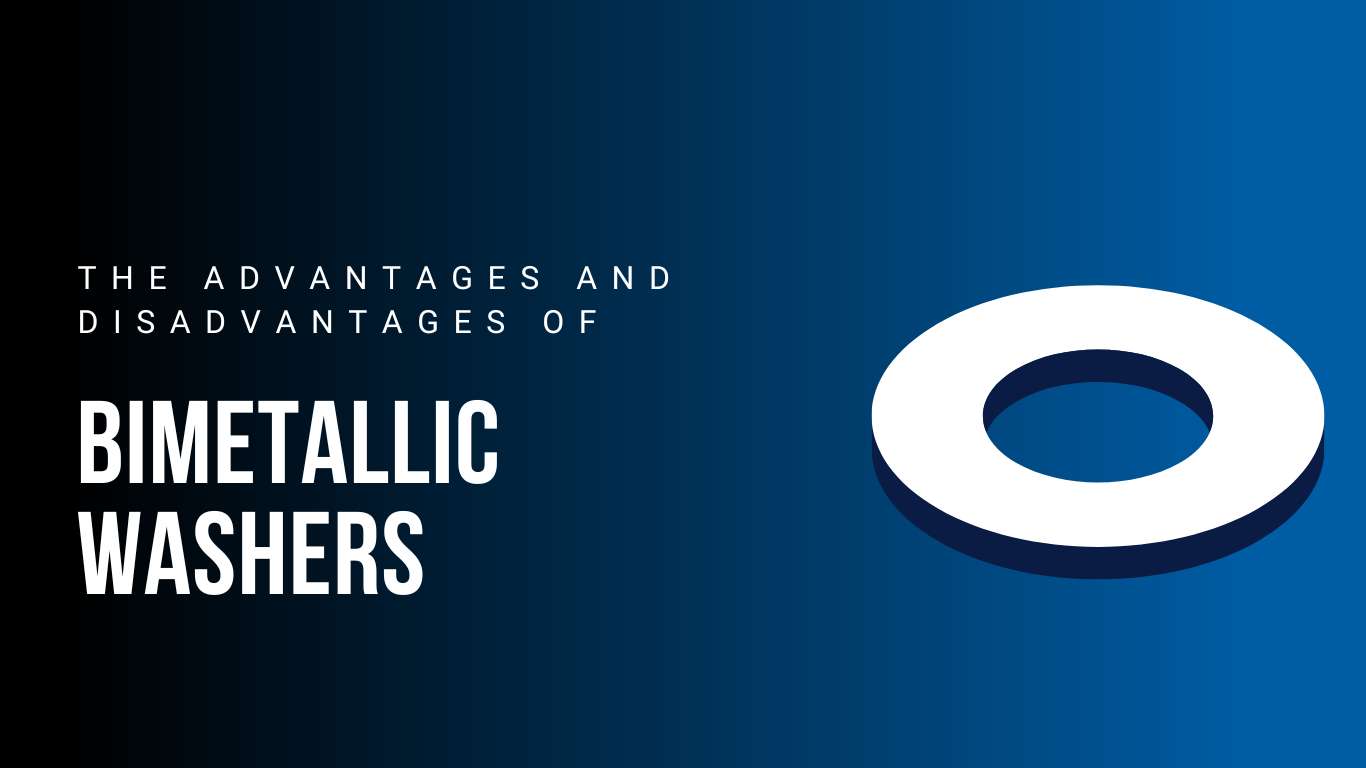
Hey there, fellow engineering enthusiasts! Today, we're diving into the world of washers, specifically the fascinating realm of bimetallic washers. These little guys might seem insignificant, but they play a crucial role in keeping our machines, buildings, and countless other applications humming along smoothly.
But are bimetallic washers the perfect solution for every situation? Let's explore the advantages and disadvantages of these unique fasteners to help you decide if they're the right fit for your next project.
Table of Contents
- What are Bimetallic Washers?
- How Do Bimetallic Washers Work?
- Advantages of Bimetallic Washers
- Disadvantages of Bimetallic Washers
- Applications of Bimetallic Washers
- Choosing the Right Bimetallic Washer
- Conclusion
What are Bimetallic Washers?
Imagine a washer made of two different metals bonded together. That's essentially what a bimetallic washer is! They typically consist of a layer of a high-expansion coefficient metal, like brass or copper, bonded to a layer of a low-expansion coefficient metal, such as steel or invar. This unique combination gives them some pretty interesting properties.
How Do Bimetallic Washers Work?
The magic of bimetallic washers lies in their ability to respond to temperature changes. When things heat up, the high-expansion layer expands more than the low-expansion layer. This creates a bending force in the washer, which helps to maintain tension on the fastener assembly.
Think of it like this: as things get hot, the washer bends slightly to take up the slack caused by the expanding materials it's holding together. This prevents the joint from loosening and keeps everything nice and tight.
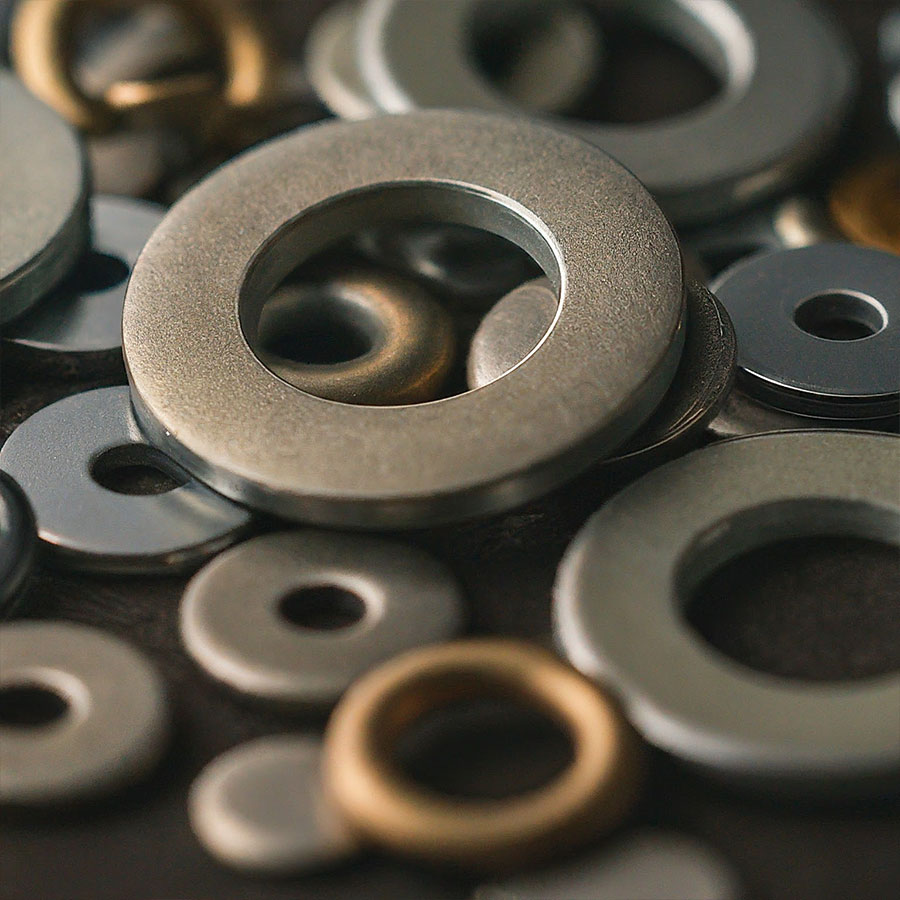
Advantages of Bimetallic Washers
Now that you understand how they work, let's delve into the benefits of using bimetallic washers:
-
Superior Compensation for Thermal Expansion: IThis is their bread and butter! In applications where temperature fluctuations are a concern, bimetallic washers excel at maintaining joint integrity. They automatically adjust to keep things tight, preventing leaks, vibrations, and even catastrophic failures.
-
Enhanced Load Distribution and Sealing: even catastrophic failures.
Enhanced Load Distribution and Sealing: The bending action of the washer helps to distribute the load more evenly across the fastener, reducing the risk of point loading and improving the overall seal of the joint.
-
Improved Resistance to Loosening:As mentioned earlier, the self-adjusting nature of bimetallic washers helps to counteract loosening caused by thermal expansion and vibration. This translates to less maintenance and downtime for your equipment.
-
Reduced Maintenance Needs:Since bimetallic washers automatically compensate for thermal expansion, they can significantly reduce the need for frequent retightening of fasteners. This translates to cost savings and improved efficiency.
Disadvantages of Bimetallic Washers
While bimetallic washers offer some compelling advantages, it's important to consider their limitations as well:
-
Higher Cost Compared to Standard Washers: Due to their unique construction and materials, bimetallic washers can be more expensive than standard washers.
-
Potential for Galvanic Corrosion: When two dissimilar metals are in contact, like in a bimetallic washer, there's a risk of galvanic corrosion if exposed to moisture. However, this can be mitigated by choosing washers with appropriate coatings or using them in dry environments.
-
Limited Availability in Certain Sizes: Bimetallic washers might not be readily available in all standard washer sizes. It's always a good idea to check with your supplier for availability before finalizing your design.
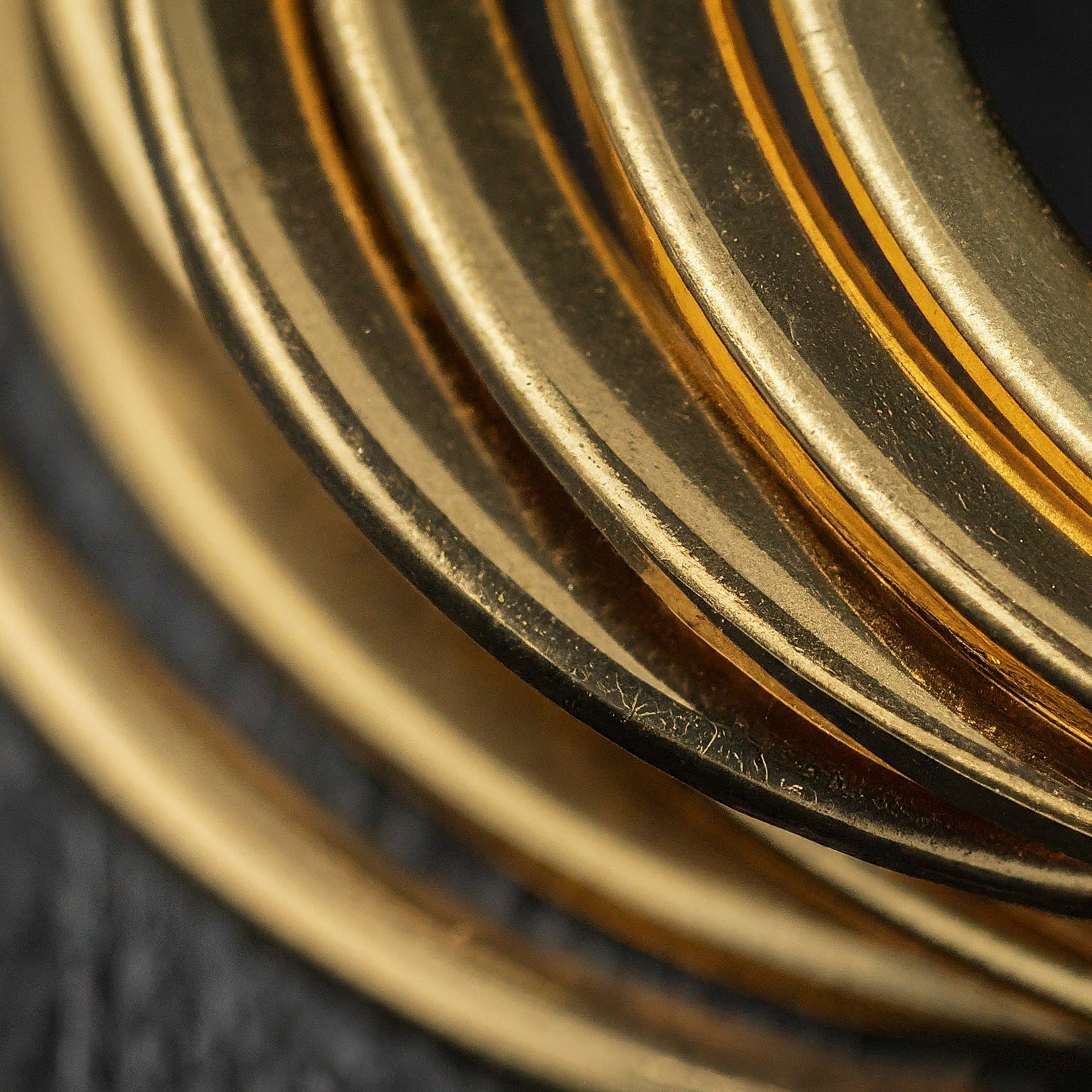
Applications of Bimetallic Washers
Bimetallic washers find application in a wide range of industries due to their ability to handle thermal expansion:
-
Automotive Engines: They are commonly used in engines to maintain proper gasket sealing despite temperature fluctuations.
-
Exhaust Systems: The constant heating and cooling cycles in exhaust systems make bimetallic washers a valuable asset for maintaining a tight connection.
-
Power Plants: From turbines to pipelines, bimetallic washers help ensure secure connections in high-temperature environments.
-
Aerospace Industry: With their ability to withstand extreme temperature variations, bimetallic washers play a role in the reliable operation of aircraft.
-
Construction: They can be used in applications like bridges and buildings to compensate for thermal expansion and maintain structural integrity.
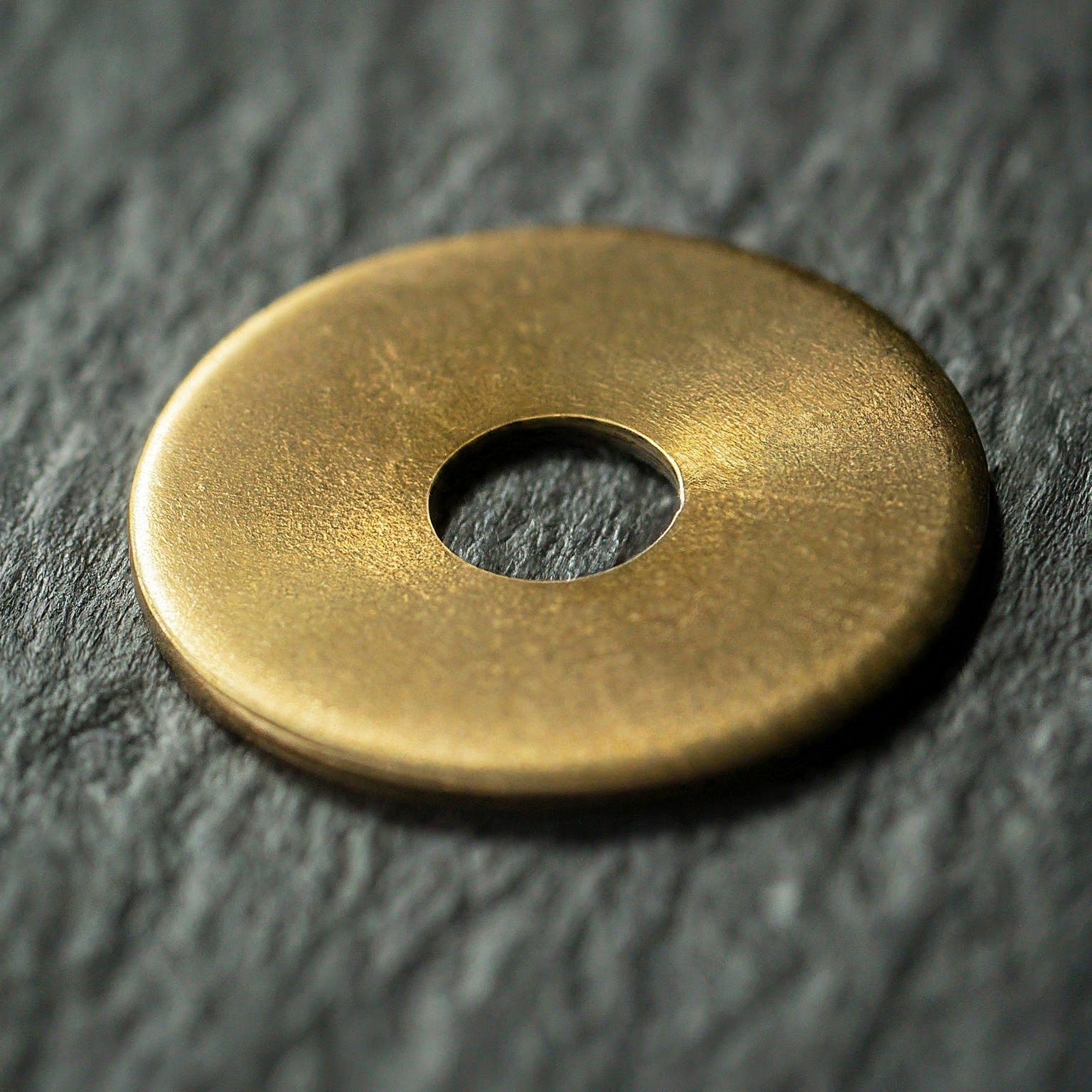
Choosing the Right Bimetallic Washer
So, you've decided that bimetallic washers might be the right fit for your project. But with various options available, how do you choose the perfect one? Here are some key factors to consider:
-
Temperature Range: Select a washer rated for the temperature range your application will experience. Exceeding the washer's capabilities can compromise its effectiveness.
-
Material Selection: The specific metals used in the washer will impact its performance. Brass-steel combinations are common, but depending on the application, you might need washers made with different metals like invar or stainless steel.
-
Size and Thickness: Ensure the washer has the appropriate dimensions to fit your fastener and provide adequate load distribution.
-
Coating: If galvanic corrosion is a concern, consider washers with a protective coating on one or both metal layers.
Finding the right supplier with expertise in bimetallic washers is crucial. They can guide you through the selection process and ensure you get the washer that best meets your specific needs
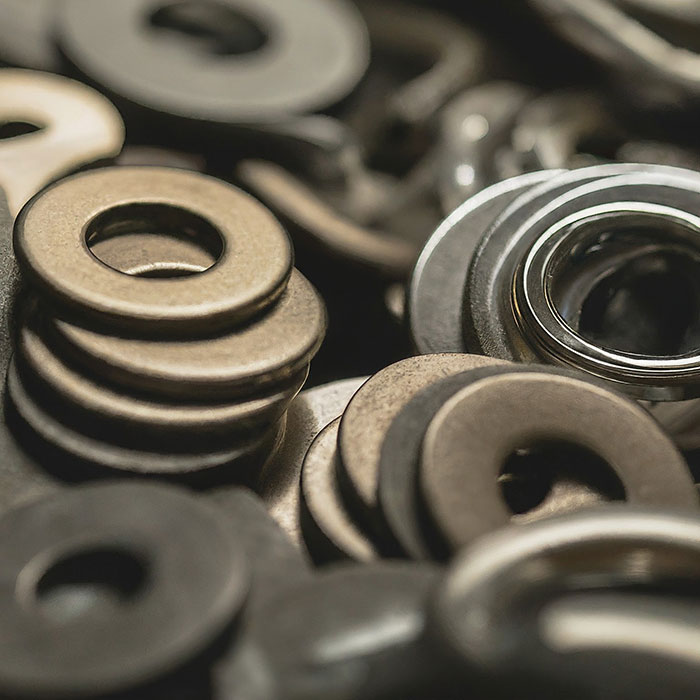
Conclusion
Bimetallic washers offer a unique solution for applications where maintaining joint integrity despite temperature fluctuations is critical. Their ability to compensate for thermal expansion, improve load distribution, and resist loosening makes them a valuable tool for engineers across various industries.
However, it's important to remember that they come with a slightly higher cost and potential limitations regarding availability and corrosion. By carefully considering the advantages, disadvantages, and selection factors, you can determine if bimetallic washers are the right choice for your next project.
Ready to find the perfect bimetallic washer for your project? Visit Sachin Shim, a leading supplier of high-quality bimetallic washers, to explore their selection and get expert advice
Author
Meet Seema, our expert author in industrial materials with a deep understanding of shim . With years of experience, Seema brings valuable insights and expertise to this guide, making him a trusted source for all things related to brass shim sheets. Join us as we delve into the art of crafting brass shim sheets with Seema leading the way.
List Other similar blogs








